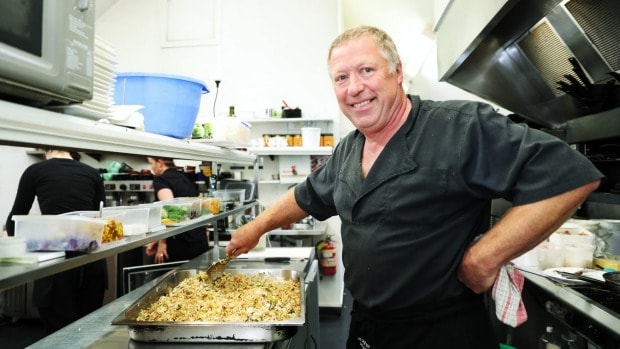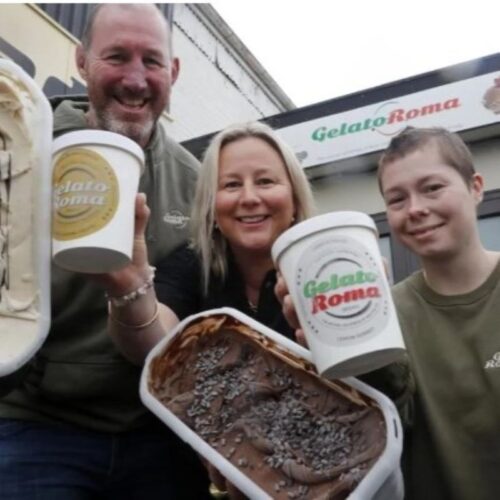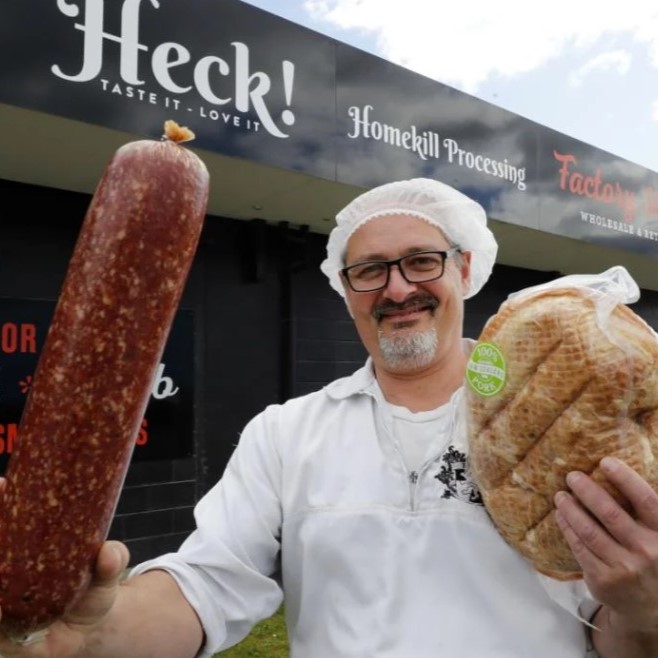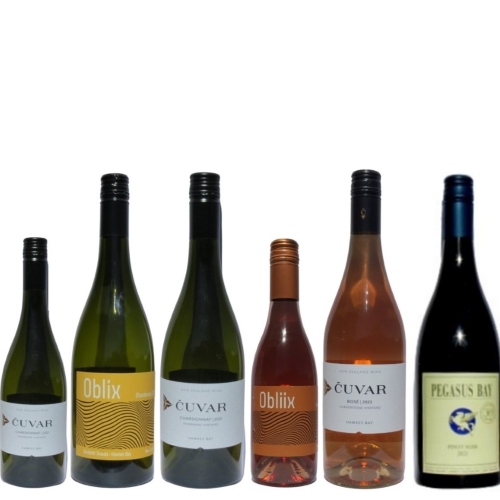
John Appelman – Nelson Mail 11.10.16
Appelman is a name synonymous with great food in the Nelson region, both in the restaurant scene, and in catering events from small dinners to large weddings and functions.
I have many memories of eating food created by John Appelman, and some of the most memorable have been at events he has catered including at the Nelson Tasman Chamber of Commerce Business Awards in the 1990’s, where he set up a spit roast in the Trafalgar Centre for one awards dinner, and also for a dinner I organised for a group of wine and food aficionados from around the world at the Boat House in about 2002.
The skills he brings to creating outstanding food for events and at the different restaurants he has worked in and owned over the years started “when I was a nipper” in his home country Holland.
Born in the Netherlands in the 1950s food has been a passion since he stirred his mother’s pots on the stove as a five-year-old. Appelman says “to be fair she had to make the most of limited resources, but that reflected the times and foods available. A lot of foods and attitudes to cooking were affected by austere post-war Europe – we made the most of what was readily available, lots of potatoes, cabbage and pork.
“Many producers raised pigs indoors in barns during the harsh European winters, so that was our main meat; we did breed large rabbits in cages – just before Christmas Dad would tell us the cage had been left open and the rabbits had escaped, and then we found ourselves eating rabbit for Christmas dinner.”
Appelman told his mum when he was very young he was going to be a chef and “being as stubborn as a mule” everything he did at school was so that he could realise that ambition.
He earned his full trade qualifications at the Hospitality College in Amsterdam where the students learned everything from baking to fine cuisine. During his training he worked weekends in local hotel kitchens starting when he was just 13 to get as much experience as possible.
“I got very lucky, there is a very structured apprenticeship system in Holland and I was fortunate enough to work in two very good restaurants during my apprenticeship, including one that earned its first Michelin star while I was there and its second star after I left – they still have two stars.”
When he and his wife Penny were travelling around Europe a few years ago they visited that same restaurant, de Bokkedoorn in Zandvoord, and he “just stuck my nose in the back door, said that I was apprenticed here when I was young, and they took me back into the kitchen, showed me around, and invited me to watch what they were doing – I spent a great afternoon there. The kitchen hadn’t changed much, just more fancy gear.”
“Many restaurants in Europe are held in family ownership for generations and the son of the man I worked for now runs the restaurant – when I was there they had four apprentices and whoever worked hardest and longest went to the top of the pecking order – that was me, very keen and focussed, rather than chasing girls, I just wanted to cook, the same as I do today.”
“I was really lucky to train and work in a place like that.” he says.
Appelman’s brother was already living in New Zealand and he came here for his wedding, loved what he saw, so migrated here in 1980 after completing his compulsory Military Service.
His first job in New Zealand was working at the Capistrano Restaurant in Bridge St for Dave Whitehead, who told him he had a good chef at the moment, but that he had had a Dutch chef 10 years earlier -“and he said if I was as good as that first Dutch chef he would get rid of his current chef and hire me, two weeks later I had a job, I can’t imagine that happening today.
“Working at the Capistrano was a real challenge to start with, I didn’t speak very much English at all and I had to take bookings when people phoned during the day and had to order stock, it was a real nightmare for me for a couple of months.”
Appelman says Whitehead “would invite all his friends, including well known entertainers such as John Rowles and Eddie Low, after dinner service had finished in the evenings, and I would have to cook things like mutton birds and puha for them – for a boy from Holland who had trained in fine-dining this was a bit of a challenge, but was also heaps of fun.”
After the Capistrano Appelman spent a couple of years catching and selling eels on the West Coast, then worked in Queenstown, where he met his wife Penny, before they both returned to Nelson.
After four years at the Arthur Wakefield in Richmond, and with two toddlers, he and Penny opened Appelman’s Restaurant in Bridge St, “It was a retail shop which we turned into a restaurant and as difficult as it was I was still as stubborn as a mule, right or wrong I was going to do it.”
During the 9 ½ years they were in Bridge St it seemed like a new restaurant or café was opening every month as the city transformed into the café and dining centre it is today.
Appelman has a great sense of humour too and that was quite evident when people asked what a geoduck was – for those who don’t know it is a shell fish with a rather large neck and quite phallic in shape so when asked he would bring one out on a platter to show diners, much to the hilarity of guests at the table – “to be fair it was a bit of a party trick”.
After Bridge St he moved back to the Arthur Wakefield but this time as owner of the restaurant, renamed it Appelman’s Restaurant, and ran that for ten years before selling up and spending a couple of months travelling around Europe in a campervan.
During his time at all of these restaurants he established a great reputation as a caterer and locally was the go-to caterer for weddings, events and functions and when he bought the Grape Escape Cafe it became a great base to use for catering too.
He has been at the Grape Escape just over seven years and it is now a very busy, buzzy, casual place where he can look out the windows and see the trees and mountains, a nice bonus of finally working daytime hours, and they have a very loyal clientele – plenty of locals just drop in for coffee and cake as well as lunch.
He says that as a lunch café the food still has to be of a high standard and “we make 99% of dishes freshly from scratch ourselves which is unusual these days, no pre-made sauces or desserts, or muffins or scones made from commercial premixes –everything is prepared, cooked and baked from fresh ingredients by us. We have four full timers in the kitchen plus myself and I keep telling them I won’t drop my standards.”
And the future? “I still love cooking, and can’t see me stopping anytime soon. But sometimes I think I should slow down a bit work wise as I get older. That’s a hard thing for me, but I am working on it!”



